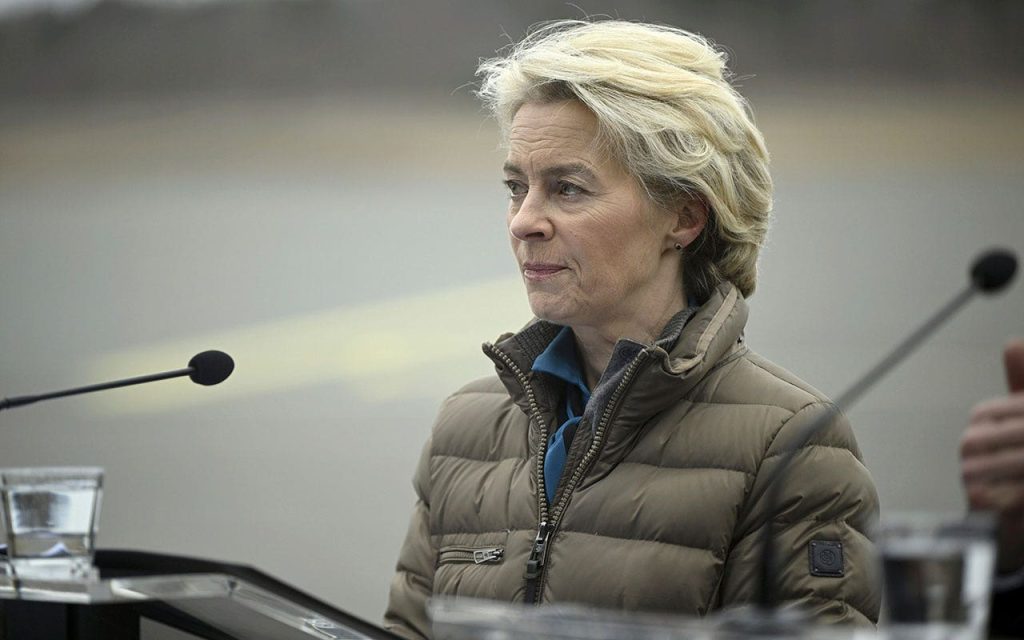European Commission President Ursula von der Leyen has raised concerns about the security implications of Finland’s decision to close its border crossings with Russia, citing perceived risks orchestrated by Moscow. The border closures were extended due to a surge in migrants, with only one checkpoint open for rail travel. Finland shares an 832-mile land border with Russia, stretching from forests in the south to Arctic terrain in the north. Von der Leyen emphasized that the security issue is not just a Finnish concern but also one that impacts the entire European Union, as Putin and his allies have been using migrants to test defenses and destabilize the bloc.
The European Commission President made these remarks during a visit to the border, specifically in southeastern Finland. She highlighted Putin’s focus on Finland in response to the country’s support of Ukraine and accession to NATO. Von der Leyen stressed the need for a joint approach to security, emphasizing the importance of solidarity within the EU. Finland’s decision to close border crossing points with Russia “until further notice” was based on the perceived risk of organized migration orchestrated by Moscow. Only one checkpoint for rail travel remains open, mainly for cargo trains, with concerns about the potential for illegal border crossings.
Von der Leyen flew over the border in a Finnish helicopter with Prime Minister Petteri Orpo, observing the landscape of forests and towns along the border. Orpo highlighted the increased risk of Russia aiding individuals in attempting to illegally enter Finland outside of the official border crossing points, particularly as warmer weather approaches. The migrants primarily come from the Middle East and Africa, seeking asylum in Finland, a member of both the EU and NATO. The country’s decision to join NATO in 2023 and the subsequent membership of Sweden have reshaped Europe’s security landscape in response to Russia’s invasion of Ukraine.
The issue of security is a key theme for von der Leyen’s campaign for a second term as head of the EU Commission, with the conservative bloc emphasizing security ahead of the European Parliament elections in June. The security implications of the border closures and the potential for organized migration orchestrated by Moscow underscore the need for collective action within the EU. Finland’s decision to extend the closures reflects concerns about illegal border crossings and the broader issue of security for the bloc as a whole. Von der Leyen’s visit to the border and discussions with Finnish officials highlight the shared responsibility for addressing security challenges within the EU.
As Finland navigates the implications of its border closures with Russia and the broader security concerns, the EU Commission President’s visit highlights the importance of solidarity and cooperation within the EU. The issue of migration orchestrated by Moscow, particularly in response to Finland’s support of Ukraine and NATO accession, underscores the need for a unified approach to security challenges. With the European Parliament elections on the horizon, security remains a significant issue for the EU, with Finland’s decision reflecting broader concerns about border security and the potential for destabilization by external actors. The collective response to these challenges will be a key aspect of von der Leyen’s bid for a second term and the EU’s approach to security in the coming years.


